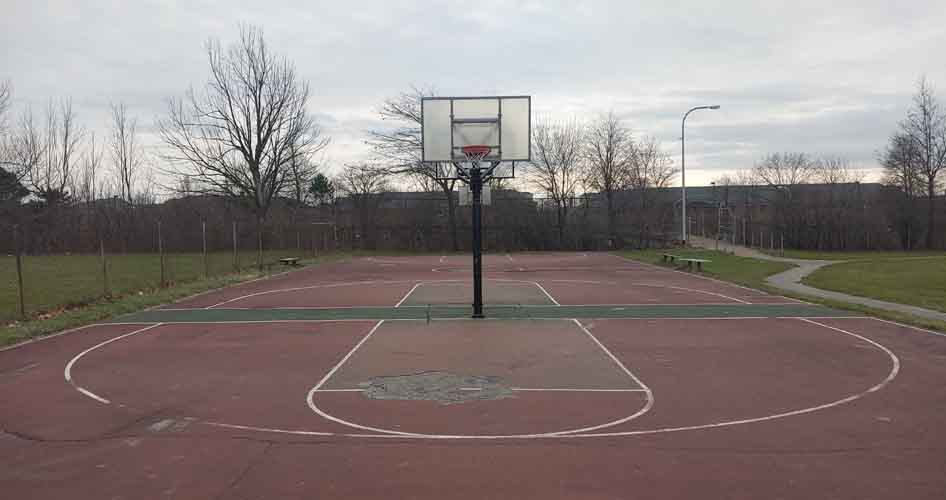
An Important Life Lesson that Basketball and other Sports Teach Us
This essay is another promotional piece for my book project The Engineers: A Western New York Basketball Story of which there are two parts. I created a page for the book, and the promotional content surrounding it. You can learn about the 42 players and coaches from Section VI that I interviewed and who were critical for this project. My interviews and research revealed several interesting findings. There were some differences in my interviewee’s stories, but many stories surprisingly paralleled mine. That goes for some of the more successful players as well. Many of us had what I’ll call ‘quitting experiences’ in common. Those quitting experiences are the bases for this essay.
Building Blocks for Life
The Engineers: A Western New York Basketball Story is a story about the game of life, not just the great game of basketball. It is a story about learning to compete. Learning perseverance and battling through life’s inevitable adversities is not easy depending upon what they are. This is something the late Dr. Kenneth Leon Jones preached to us regularly at our basketball practices. I think some of us got it at the time, while it sunk in later for others, if at all.
My short basketball journey taught me several important building blocks for my life. I had several quitting experiences myself and I witnessed others go through them as well. The same is true for some of the other guys I interviewed. Many saw their own basketball dreams torn apart by teammates walking away for any number of reasons. I am not looking to demonize anyone for decisions they made in the past in writing this piece. This is an important theme of my story however and I thought it was worth visiting. Let me know in the comments section below if you’ve experienced anything like this.
Persevering Through Life’s Journeys

“It’s a long season, and our emotions will be tested over the next three to four months!” The Engineers: A Western New York Basketball Story is a story about learning to persevere through life. Many journeys and experiences get hard and go in unexpected directions. We must learn perseverance to get through them. I learned a lot of lessons about life from the great game of basketball. An overarching lesson I learned was that people respond differently to adversity. Things get hard for us in any area and each of us must decide whether to stay the course and continue, or walk away.
Some people immediately flee when things get hard or start going in unexpected directions. Others stay but suffer in silence if no one knows what’s happening to them. Others quietly calculate the situation to themselves and then make an ultimate determination. Some buckle down and focus that much harder. Others fight back if it’s an option.
Don’t Be Frontrunners!
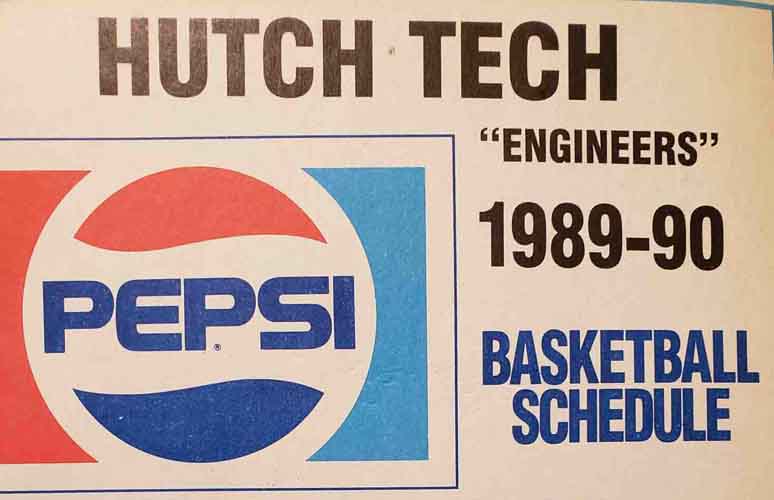
“DON’T BE FRONTRUNNERS!” Coach Ken Jones preached this to us a lot my first year on the Hutch-Tech Boys’ Basketball Team. That was the difficult but magical 1991-92 season. I don’t remember it so much in my tumultuous second year on the team, the 1992-93 season. It was probably because I was going through my own personal struggles. When you’re going through your own personal struggles, it’s hard to process what’s happening outside of you. Coach Jones’ quote about frontrunners simply meant to continue to fight and not buckle when trailing an opponent. It also meant to withstand their surges in momentum. Keep fighting and battle back. It wasn’t an easy principle to teach a group of kids. This principle has contexts for teams and for the individuals, and it goes beyond the game of basketball.
What Adversities do We Encounter Along the Way?
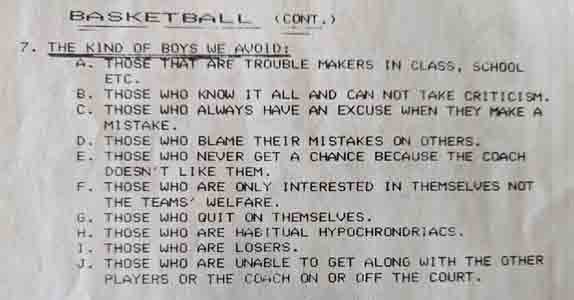
I have stated all along that my experiences on the Hutch-Tech Boys’ Basketball Team have translated into the real world. The story world for my book is the Western New York high school basketball scene, so let’s start there. I will keep this general. Teams are dynamic things with multiple personalities and organic parts. Some parts naturally fit well together while others don’t. This is not obvious to the casual observer, watching from the sidelines criticizing and critiquing play on the floor.
What adversities do players face on teams? The most obvious is losing. Another is not feeling like one is a part of the team, even after securing a roster spot. Players don’t play as much as they think they should in many instances. Some players think they could do other things with their time. Getting jobs and earning a paycheck often look more appealing to teenagers who feel they aren’t getting enough playing on their basketball teams. This happens to a lot of inner-city kids.
Team Chemistry and Togetherness
You might not mix well with your teammates as a player. You may also feel like you’re in a toxic locker room. See my piece regarding the 1990-91 Hutch-Tech Engineers for a discussion of the importance of team chemistry and togetherness. These are arguably more important than ability and athleticism.
Changed environments also lead to wanting to walk away from something you once desired. This is especially true when you have no say in that changed environment. This happens with coaching changes, and I’ll leave that there. The arena for my story is once again the Western New York high school basketball scene of the early 1990s. These themes clearly translate into the adult world however. Decisions are finally thought to be made in the best interests of the student athletes. It could also be a workforce though.
Continuing On When Others Take Separate Paths and Teammates Walking Away
My short but profound basketball journey was an up and down ride that didn’t turn out as I envisioned. Journeys involving groups typically start with intentions of successfully finishing together. Not everyone finishes though which was one of the hardest and most educational parts of my experience. It’s particularly difficult when the people walking away are people you’re close to. Sometimes you are left on teams with people you aren’t close with. You may also start to wonder if you should stay yourself.
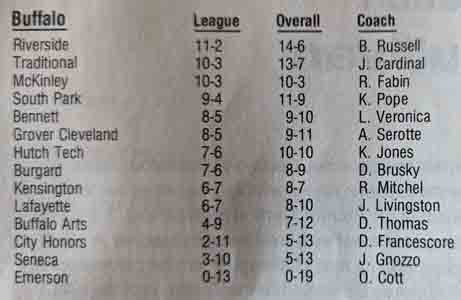
It’s in those instances where remembering the ‘leader parable’ becomes important. I thought the saying, “Be a leader not a follower,” solely meant leading other people when I was younger. That is the first context people think of, but the other context is continuing with your passion/vision while others drop off. It also means leading yourself and continuing to forge ahead regardless of what others do or don’t do. It’s not an easy thing to do, but necessary at times and rewarding.
“It was extremely difficult when Del (Shawndel Planter) quit our Riverside Boys’ Basketball Team,” No. 23 Edmond Harris shared in our discussion. Ed was the leader of the Frontiersman teams he played on and experienced several adversities his senior season. They won the Yale Cup (pictured above) and the Class C sectional in our area in the 1991-92 season but had difficulties repeating the successes the next year.
A Coach’s Perspective and Players Staying and Playing Angry
The above-mentioned aspects are from a player’s perspective. What about the coaches though? What if you see that you’ve run your course at a particular place? If you see that the next groups of players won’t submit to your teachings, what do you do? What if you start to feel the contributions you’ve made are no longer appreciated? What if you just get tired?
“I would be just as demanding, but more understanding if I could do it all over again!” I noted that Coach Jones had his critics as well as supporters in my essay focusing on the 1990-91 Hutch-Tech Boys’ Basketball Team. Some players thought he gave them a hard time even though they secured roster spots. The opening quote from this paragraph comes from Coach Jones himself. Before he died, he realized that he was hard on some of his players. He may not have fully considered what they were going through in their personal lives.
“Some players played mad under Jones,” one of my interviewees, Jerrold ‘Pep’ Skillon told me, which we laughed about. They stayed though and toughed it out. Why did they stay? Some of them loved the game that much and wanted to be with their brothers. Some came very close to quitting but were encouraged to stay and tough it out from individuals outside of the program.
Supporters Urging You not to Quit
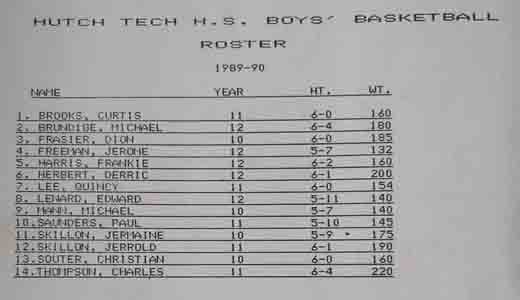
The late No. 11 Quincy Lee was one my first interviewees for this project. Quincy was a senior on the 1990-91 Hutch-Tech Boys’ Basketball Team. His three-point shot late in the game against Buffalo Traditional qualified the Engineers for sectional postseason play. He played a major role in the program’s ascension. I thought the 1990-91 Yale Cup and Class B Sectional Championship team was a utopia looking on from the outside. I was likewise surprised to hear that Quincy came close to quitting his junior season and that someone convinced him not to do so. The following is an excerpt from our discussion:
“I wanted to quit because I couldn’t take playing for this dude! It was bothering me every day and finally in January, we had parent-teacher conference week. I decided that was it and washed and folded my uniform and finally gave in. The gym was open that day so we could still play basketball. I came into school and brought my uniform and I was walking to the office to quit and I ran into Coach Shea. It was just before I got to Coach Jones’ office. He saw that I had the uniform and that I was quitting. He asked me, ‘What are you doing?’ I said, ‘I can’t take it anymore!’”
“Shea pulled me aside and said, ‘LOOK. You let this guy turn you into a three-point specialist. You’re not a three-point specialist. Don’t quit! He wants you to quit and he’s been riding you to quit. Don’t give him what he wants. Play your game! If you get pulled out and have to sit on the bench, then that’s what you do. But play your game! When you get into the game, you’re not even yourself because you’re so scared to be pulled out if you miss a shot. So, play your game!’”
I discuss the importance of mentors and supporters later in this piece. It’s often people watching from the sidelines who have the power, influence and insight to hold things together and encourage individuals to stay in difficult situations. This goes beyond the great game of basketball. Does it sound familiar to you?
What Quitting Basketball and Sports in General Teaches You
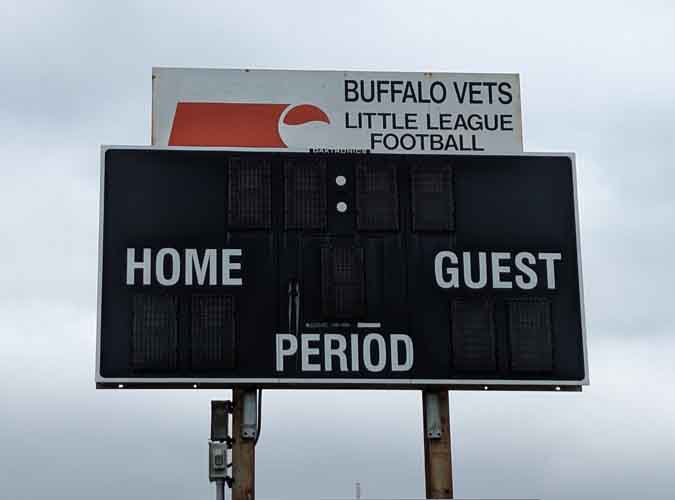
I’ve conducted 43 interviews for The Engineers. Read parts one and two of my interview excerpts for samples. One of my most fun interviews was with No. 32 Jerrold ‘Pep’ Skillon who was one of the key pieces of the 1990-91 Hutch-Tech Boys’ Basketball Team. There were numerous fun parts of our interview, but one of the most important was his early experience with quitting something, and what happens when you do. He learned his lesson before he got to Hutch-Tech and already had a perspective on finishing things. The following is that excerpt from our interview:
“I was playing little league football and my friend and I were talking. They made us run extra laps. I played for the Buffalo Vets. My cousin who was one of the coaches made me run an extra lap and I felt offended and I quit the team. I ran the lap and never came back to practice after that. I would go up to the park to play basketball and I’d still watch the football team practice, because football was my first love. It was me being lazy and having an attitude.”
“That was the first and last time I ever quit anything! I remember my father being disappointed that I quit the football team. My father was excited about putting me in little league, so I was about six years old. And the crazy part was that team won the championship that year! And I was at the championship game because my cousin played on the team. One of my cousins played and one of my cousins coached and a lot of my friends were on so I still followed the team. I sat there and watched that team win, and I sat there with a lump in my throat thinking that I quit this for nothing – for being lazy and that was the last time I ever quit any sport in my life.”
Having the Quitting Experience Early
This aspect of my discussion with Pep Skillon fascinated me because he was fortunate to have the experience early and then build upon it. Some guys didn’t get the lesson until their teens or later. I’ll keep this next part vague. The reality is that many people often regret quitting and walking away from situations. The examples I’ve provided involve basketball or football teams. You may inevitably wonder if you did the right thing when you quit, no matter how upset you were when you did it. This is why they say sports are a metaphor for life.
The former Houston Oilers’ Head Coach Jack Pardee benched legendary NFL quarterback Warren Moon temporarily in the early 1990s. Moon could have had a meltdown but he stayed calm and eventually started again. Coaches trying to teach lessons or motivate their players which isn’t always obvious at the time. You may be allowed to return as a player if you quit, but not in other instances which is hard. It is hard particularly if you’ve seen the error of your ways. It’s not unusual for people who quit and walk away to furthermore come back and ask you how things are going, just out of curiosity about the situation they left.

“I quit my sophomore year because I felt like Gnozz wasn’t playing me,” said Demoan Daniels. No. 32 led the Seneca Boys’ Basketball Team his senior season. Deomoan worked his way up gradually in the program. He quit the varsity team early on after feeling like Coach Joe Gnozzo wasn’t playing him enough. He was fortunate that Coach Gnozzo allowed him back as many coaches would not have.
Finishing What You Started and the Importance of Mentors and Supporters
A challenge in generating these promotional pieces is not giving the entire book away. I will say one thing though. The people around you matter in our journey through the many arenas of life. Mentors and supporters have the power to strengthen you and give you perspective in those critical moments when you feel like giving up on something.
There were moments during my own journey as an Engineer when I felt like giving up because things were turning out differently than I had envisioned them. There were a couple of people who fortunately urged me to finish what I started, particularly in my senior year. I’m grateful that those people were there. Coach Phil Richardson comes to mind who I highlighted in my piece reflecting on the Yale Cup and Section VI.
Even if the result isn’t what you want it to be, you gain something from finishing what you started. You gain a perspective that those who didn’t finish don’t get. You get the reward of knowing that you finished. Again, the power of the research that I did for this project is that I found that other players experienced the exact same thing I did.
The Pictures Used in This Essay
The pictures used in this essay are from several sources. Some are from Central Park in Buffalo, NY, the location of Pep Skillon’s story discussed above. They were taken on a frigid winter Buffalo day with the signature gray skies of the region. The first image is from Roosevelt Park on the eastside of Buffalo.
Other images are from sectional books and some of the late Coach Jones’ materials that he passed on to me for this project. Coach Jones had specific criteria for the types of boys he wanted in his basketball program. He listed out both what he wanted and didn’t want. What do you see when you look at item G above regarding what he didn’t want? I created a promotional/tribute video about Coach Jones a few years ago. You can watch it at the link below. Please give it a like and subscribe to my sports YouTube channel entitled, Big Discussions76 Sports if you watch it.
Closing Thoughts
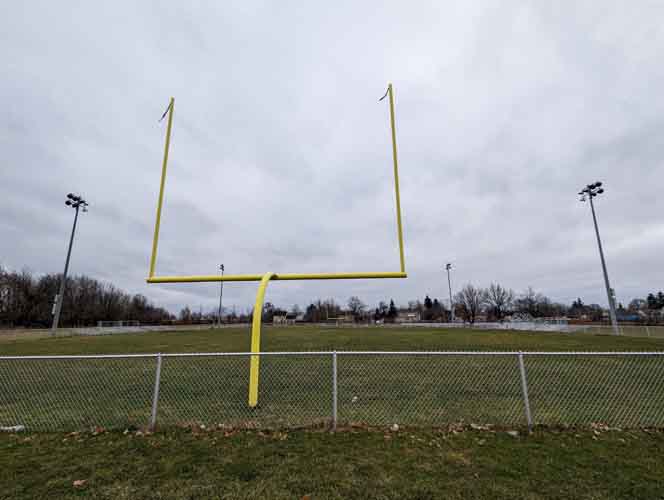
I will create more promotional/teaser pieces for The Engineers: A Western New York Basketball Story, both via print and video as I journey through the final steps of the book’s completion. I created a page here on Big Words Authors for the purpose of giving a background of the book. On my first blogging platform, the Big Words Blog Site, there are interviews of some of the most accomplished Section VI players from my era including: Jason Rowe, Tim Winn, Carlos Bradberry and Damien Foster. I also interviewed legendary LaSalle Head Basketball Coach Pat Monti. Finally, there are several other basketball-related essays related to my book project. If you liked this piece, please share it on your social media and leave a comment beneath this piece.
The Big Words LLC Newsletter
For the next phase of my writing journey, I’m starting a monthly newsletter for my writing and video content creation company, the Big Words LLC. In it, I plan to share inspirational words, pieces from this blog and my first blog, and select videos from my four YouTube channels. Finally, I will share updates for my book project The Engineers: A Western New York Basketball Story. I will protect your personal information and privacy. Click this link and register using the sign-up button at the bottom of the announcement. If there is some issue signing up using the link provided, you can also email me at [email protected]. Best Regards.

Hello all. Thank you for reading this latest promotional essay for my book project The Engineers: A Western New York Basketball Story. I’m almost at the point of publishing part one of the project and this essay gets to the essence of the book which is staying in the game and persevering even when things get hard. In my short basketball journey I felt like quitting towards the end and I saw teammates walk away from the team which were difficult experiences. I experienced similar experiences later in life.
Thank you to the late Quincy Lee and Pep Skillon from Hutch-Tech High School and to Demoan Daniels and Edmond Harris from Seneca-Vocational High School and Riverside High School, respectively. Best regards and yours in good sports.